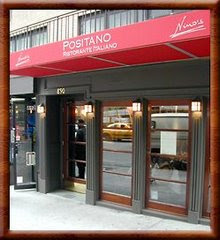
“Local families have stopped eating out," says Indigo restaurant manager Mike Alla. "And this is a small neighborhood restaurant so we definitely feel the effects of the economy."
Indigo has been suffering since early October, when the global financial crisis really started to hit hard. On a Monday night, this quaint, friendly Indian food restaurant was completely empty—servers and the manger waited, and hoped, for a customer to come.
While on the outside it appears as if only the restaurant is suffering, the owner, manager, and servers all have families to worry about. If the restaurant doesn’t make it—Mike and his workers are out of a job. Mike, who moved from Delhi in 1991, is a father of three. He has been at Indigo since its opening in 1992 and describes the workers as “family men.”
Krunch Pizza is trying to use the recession as an advantage. The owner, Tom Valenti, says that while bars are suffering because it’s cheaper for someone to “buy a six-pack and take it home,” he is using his cheap pizza prices to lure in customers who can no longer afford to eat out at nice restaurants.
Tom lives in Staten Island with his wife and two children, who work at the restaurant on weekends. He sold his trade commodity business on Wall Street to buy the restaurant for his son in June 2006. Business has not suffered since the recession, and his grandma’s Sicilian pizza recipe is good enough to keep business going strong. (I tried a slice, and it is fantastic!)
The global economic crisis does not look like it will end soon. And now it is only a matter of time before we will see the real effects—if these businesses will be able to hold on and survive, or if they will see closure before the economy picks up again.











